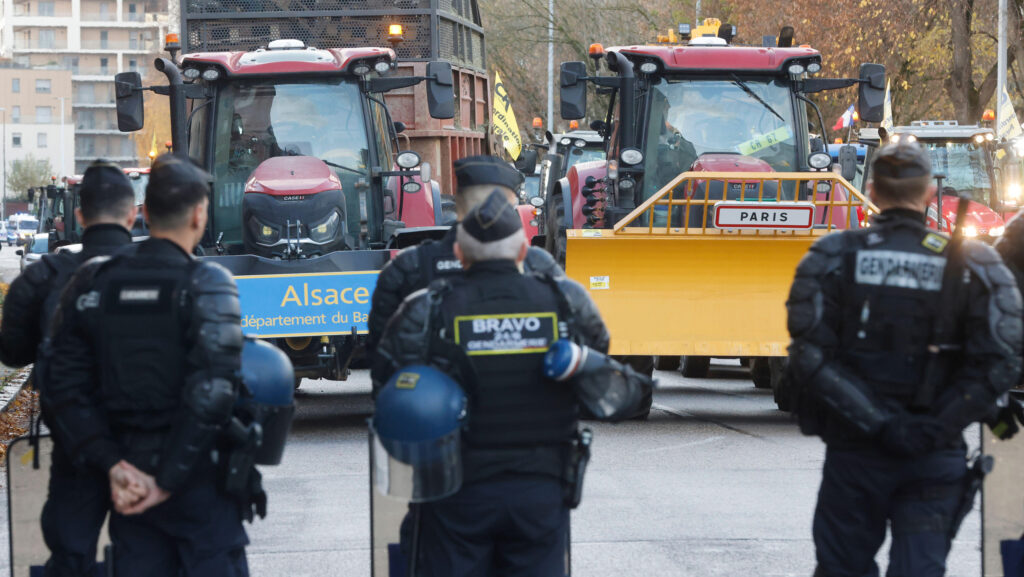European farmers protest Mercosur deal
 ©Associated Press/Alamy Stock Photo
©Associated Press/Alamy Stock Photo European farmers are mounting a fierce backlash against the recently signed Mercosur trade agreement, warning it will flood EU markets with cheap South American agricultural imports and devastate local farming communities.
Finalised on 6 December in Uruguay, the deal establishes one of the world’s largest free-trade zones, eliminating 91% of tariffs on EU exports to Mercosur nations – Brazil, Argentina, Paraguay, and Uruguay – while significantly reducing duties on key imports, including beef, poultry, sugar, ethanol, and soybeans.
Ratification is required by at least 15 of the EU’s 27 member states, representing 65% of the EU population, and by the European Parliament.
This process, which will extend into 2025, has already sparked strong opposition from France, Austria, and Poland.
See also: French farmers launch protests over EU-Mercosur trade deal
While European Commission president Ursula von der Leyen has championed the deal as a geopolitical victory, critics warn of severe political fallout.
French officials have branded the agreement “unacceptable”, while Italian and Polish farming unions have vowed to resist its implementation.
“This sellout deal was struck without a proper mandate and leaves EU farmers to suffer the consequences,” said Francie Gorman, president of the Irish Farmers’ Association (IFA), accusing the European Commission of using agriculture as a bargaining chip to secure trade benefits for other industries.
Farmers argue that the agreement gives South American producers, who benefit from lower costs and weaker sustainability, labour, and animal welfare regulations, an unfair competitive edge.
Food and agricultural products accounted for 42% of the EU’s €23bn in imports from Mercosur countries in 2023.
Copa-Cogeca, the EU’s leading farming lobby, has called for flash protests, describing the deal as “inequitable and unbalanced”.
Copa president Massimiliano Giansanti warned of “devastating consequences” for European farmers.
Dijon protest
Protests have already begun. On 11 December, 200 farmers from the FDSEA and Jeune Agriculteurs of Côte-d’Or staged a demonstration in Dijon, France, with 50 tractors, dumping tyres and manure while targeting government buildings with eggs.
“We don’t want Mercosur, not at all,” said Marie-Guite Dufay, president of the FDSEA of Côte-d’Or.
Further actions, including tractor convoys and supermarket blockades, are planned across France, Ireland, Belgium, and Italy.
Bart Dickens of Belgium’s Farmers Defence Force predicted protests “on a scale never seen before”.
Farmers are demanding stronger protections before ratification, warning of widespread unrest if their concerns are ignored.
Tony Goodger of the Association of Independent Meat Traders (AIMS) in the UK warned that the agreement would give South American countries significant new market access for beef, poultry and other foods.
“The EU is the UK’s biggest trading partner but how long this can be maintained should the Mercosur agreement be ratified is open to question,” he said.
